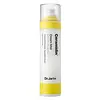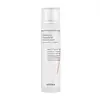What's inside
What's inside
 Key Ingredients
Key Ingredients

 Benefits
Benefits

 Concerns
Concerns

 Ingredients Side-by-side
Ingredients Side-by-side

Water
Skin ConditioningTriethylhexanoin
MaskingHydrogenated Poly(C6-14 Olefin)
EmollientMethylpropanediol
SolventDipropylene Glycol
Humectant1,2-Hexanediol
Skin ConditioningHydrogenated Lecithin
EmulsifyingButylene Glycol
HumectantTrehalose
HumectantCellulose Gum
Emulsion StabilisingEthylhexylglycerin
Skin ConditioningPolyglyceryl-10 Myristate
Skin ConditioningXylitylglucoside
HumectantElaeis Guineensis Oil
EmollientAnhydroxylitol
HumectantCitrus Aurantium Bergamia Fruit Oil
MaskingPelargonium Graveolens Flower Oil
MaskingXylitol
HumectantCeramide NP
Skin ConditioningUlmus Davidiana Root Extract
Skin ConditioningAmaranthus Caudatus Seed Extract
Skin ConditioningSucrose Distearate
EmollientGlucose
HumectantSalvia Officinalis Oil
MaskingGlyceryl Stearate
EmollientHamamelis Virginiana Extract
AntiseborrhoeicPogostemon Cablin Leaf Oil
MaskingRhodiola Sachalinensis Extract
Skin ConditioningCeramide As
Skin ConditioningCholesterol
EmollientCeramide Ns
Skin ConditioningCeramide AP
Skin ConditioningWater, Triethylhexanoin, Hydrogenated Poly(C6-14 Olefin), Methylpropanediol, Dipropylene Glycol, 1,2-Hexanediol, Hydrogenated Lecithin, Butylene Glycol, Trehalose, Cellulose Gum, Ethylhexylglycerin, Polyglyceryl-10 Myristate, Xylitylglucoside, Elaeis Guineensis Oil, Anhydroxylitol, Citrus Aurantium Bergamia Fruit Oil, Pelargonium Graveolens Flower Oil, Xylitol, Ceramide NP, Ulmus Davidiana Root Extract, Amaranthus Caudatus Seed Extract, Sucrose Distearate, Glucose, Salvia Officinalis Oil, Glyceryl Stearate, Hamamelis Virginiana Extract, Pogostemon Cablin Leaf Oil, Rhodiola Sachalinensis Extract, Ceramide As, Cholesterol, Ceramide Ns, Ceramide AP
Water
Skin ConditioningGlycerin
HumectantEthylhexyl Palmitate
Emollient1,2-Hexanediol
Skin ConditioningButylene Glycol
HumectantHydroxypropyl Bislauramide Mea
EmollientMethyl Gluceth-10
EmulsifyingSorbeth-30 Tetraisostearate
EmulsifyingDipropylene Glycol
HumectantPanthenol
Skin ConditioningSorbitan Sesquiisostearate
EmulsifyingAcrylates/Beheneth-25 Methacrylate Copolymer
Sodium Citrate
BufferingTromethamine
BufferingPPG-8-Ceteth-20
EmulsifyingCitric Acid
BufferingCitrus Aurantium Bergamia Fruit Oil
MaskingHydrogenated Lecithin
EmulsifyingCetearyl Alcohol
EmollientStearic Acid
CleansingCeramide NP
Skin ConditioningCeramide Ns
Skin ConditioningCholesterol
EmollientPhytosphingosine
Skin ConditioningCeramide AP
Skin ConditioningCeramide As
Skin ConditioningCeramide EOP
Skin ConditioningWater, Glycerin, Ethylhexyl Palmitate, 1,2-Hexanediol, Butylene Glycol, Hydroxypropyl Bislauramide Mea, Methyl Gluceth-10, Sorbeth-30 Tetraisostearate, Dipropylene Glycol, Panthenol, Sorbitan Sesquiisostearate, Acrylates/Beheneth-25 Methacrylate Copolymer, Sodium Citrate, Tromethamine, PPG-8-Ceteth-20, Citric Acid, Citrus Aurantium Bergamia Fruit Oil, Hydrogenated Lecithin, Cetearyl Alcohol, Stearic Acid, Ceramide NP, Ceramide Ns, Cholesterol, Phytosphingosine, Ceramide AP, Ceramide As, Ceramide EOP
 Reviews
Reviews

Ingredients Explained
These ingredients are found in both products.
Ingredients higher up in an ingredient list are typically present in a larger amount.
1,2-Hexanediol is a synthetic liquid and another multi-functional powerhouse.
It is a:
- Humectant, drawing moisture into the skin
- Emollient, helping to soften skin
- Solvent, dispersing and stabilizing formulas
- Preservative booster, enhancing the antimicrobial activity of other preservatives
Butylene Glycol (or BG) is used within cosmetic products for a few different reasons:
Overall, Butylene Glycol is a safe and well-rounded ingredient that works well with other ingredients.
Though this ingredient works well with most skin types, some people with sensitive skin may experience a reaction such as allergic rashes, closed comedones, or itchiness.
Learn more about Butylene GlycolCeramide AP is formally known as Ceramide 6.
Ceramides are intercellular lipids naturally found in our skin that bonds dead skin cells together to create a barrier. Having a strong skin barrier leads to more firm and hydrated skin.
They are known for their ability to hold water and thus are a great ingredient for dry skin. By bolstering the skin ceramides act as a barrier against irritating ingredients. This can help with inflammation as well.
If you would like to eat ceramides, sweet potatoes contain a small amount.
Read more about other common types of ceramides here:
Ceramide NP
Ceramide EOP
Ceramide AS is formally known as Ceramides 4 and 5.
Ceramides are intercellular lipids naturally found in our skin that bonds dead skin cells together to create a barrier. They are known for their ability to hold water and thus are a great ingredient for dry skin.
Ceramide NP is a type of ceramide and formally known as ceramide 3.
Ceramides are intercellular lipids naturally found in our skin that bonds dead skin cells together to create a barrier. They are known for their ability to hold water and thus are a great ingredient for dry skin.
Ceramides are an important building block for our skin barrier. A stronger barrier helps the skin look more firm and hydrated. By bolstering the skin ceramides act as a barrier against irritating ingredients. This can help with inflammation as well.
If you would like to eat ceramides, sweet potatoes contain a small amount.
Read more about other common types of ceramides here:
Ceramide AP
Ceramide EOP
Ceramide NS is formally known as Ceramide 2. It is one of the major ceramides in the stratum corneum (outermost layer of skin) plays a role in forming a protective barrier.
Due to its structure, skin lipids can be packed tightly and in turn, this strengthens the barrier and reduces water loss.
Studies show conditions like atopic dermatitis can worsen when ceramide NS levels are low.
Learn more about Ceramide NsCholesterol is a class of organic molecules called lipids. It helps hydrate your skin and is essential to having a healthy skin barrier.
Our skin naturally contains cholesterol in the outermost layer. Besides cholesterol, it also contains ceramides and fatty acids. Cholesterol makes up about 1/4 of your skin's outer layer and barrier. Your skin barrier is responsible for keeping allergens and microbes out. Having a healthy skin barrier is also responsible for keeping your skin firm and plump.
Our bodies use cholestrol to create vitamin D, steroid hormones, and more.
Learn more about CholesterolCitrus Aurantium Bergamia Fruit Oil is the oil from the bergamot orange. It is native to Italy.
This ingredient is used to add fragrance to products. It contains limonene, linalool, and linalyl acetate.
The term 'fragrance' is not regulated in many countries. In many cases, it is up to the brand to define this term. For instance, many brands choose to label themselves as "fragrance-free" because they are not using synthetic fragrances. However, their products may still contain ingredients such as essential oils that are considered a fragrance.
When used topically, Citrus Aurantium Bergamia Fruit Oil is a photosensitizer due to its furanocoumarins. Photosensitizers make the skin and eyes much more sensitive to sunlight. Photosensitizers are linked to skin cancer.
However, more cosmetics using Citrus Aurantium Bergamia Fruit Oil are removing the furanocoumarins.
Bergamot oil was also found to have anti-inflammatory, antibacterial and antifungal properties.
Learn more about Citrus Aurantium Bergamia Fruit OilDipropylene Glycol is a synthetically created humectant, stabilizer, and solvent.
This ingredient helps:
Dipropylene glycol is technically an alcohol, but it belongs to the glycol family (often considered part of the ‘good’ alcohols). This means it is hydrating and gentle on skin unlike drying solvent alcohols like denatured alcohol.
As a masking agent, Dipropylene Glycol can be used to cover the smell of other ingredients. However, it does not have a scent.
Studies show Dipropylene Glycol is considered safe to use in skincare.
Learn more about Dipropylene GlycolHydrogenated Lecithin is created from the hydrogenation of lecithin (a group of phospholipids). Hydrogenation is a chemical reaction between hydrogen and another element.
This ingredient is an emollient and emulsifier. As an emollient, it helps soften skin by trapping moisture within. As an emulsifier, it prevents oil and water ingredients from separating.
Water. It's the most common cosmetic ingredient of all. You'll usually see it at the top of ingredient lists, meaning that it makes up the largest part of the product.
So why is it so popular? Water most often acts as a solvent - this means that it helps dissolve other ingredients into the formulation.
You'll also recognize water as that liquid we all need to stay alive. If you see this, drink a glass of water. Stay hydrated!
Learn more about Water